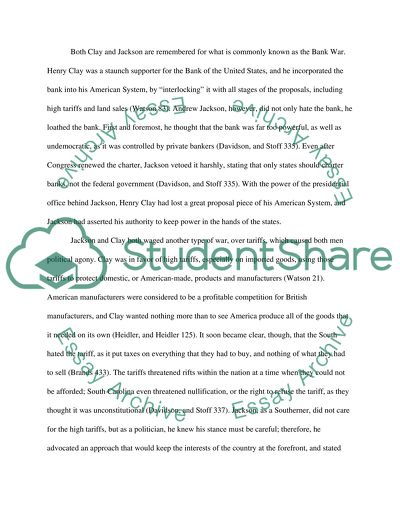Cite this document
(“Andrew Jackson vs. Henry Clay Essay Example | Topics and Well Written Essays - 750 words”, n.d.)
Retrieved from https://studentshare.org/history/1435478-andrew-jackson-vs-henry-clay
Retrieved from https://studentshare.org/history/1435478-andrew-jackson-vs-henry-clay
(Andrew Jackson Vs. Henry Clay Essay Example | Topics and Well Written Essays - 750 Words)
https://studentshare.org/history/1435478-andrew-jackson-vs-henry-clay.
https://studentshare.org/history/1435478-andrew-jackson-vs-henry-clay.
“Andrew Jackson Vs. Henry Clay Essay Example | Topics and Well Written Essays - 750 Words”, n.d. https://studentshare.org/history/1435478-andrew-jackson-vs-henry-clay.


